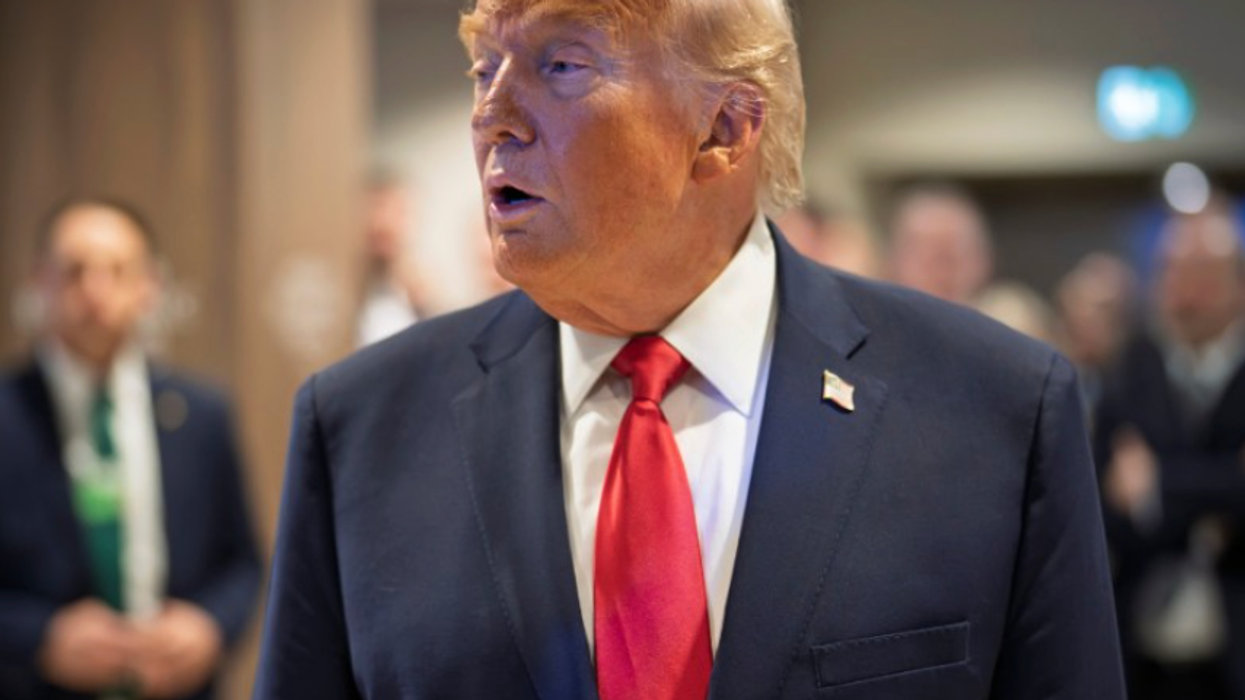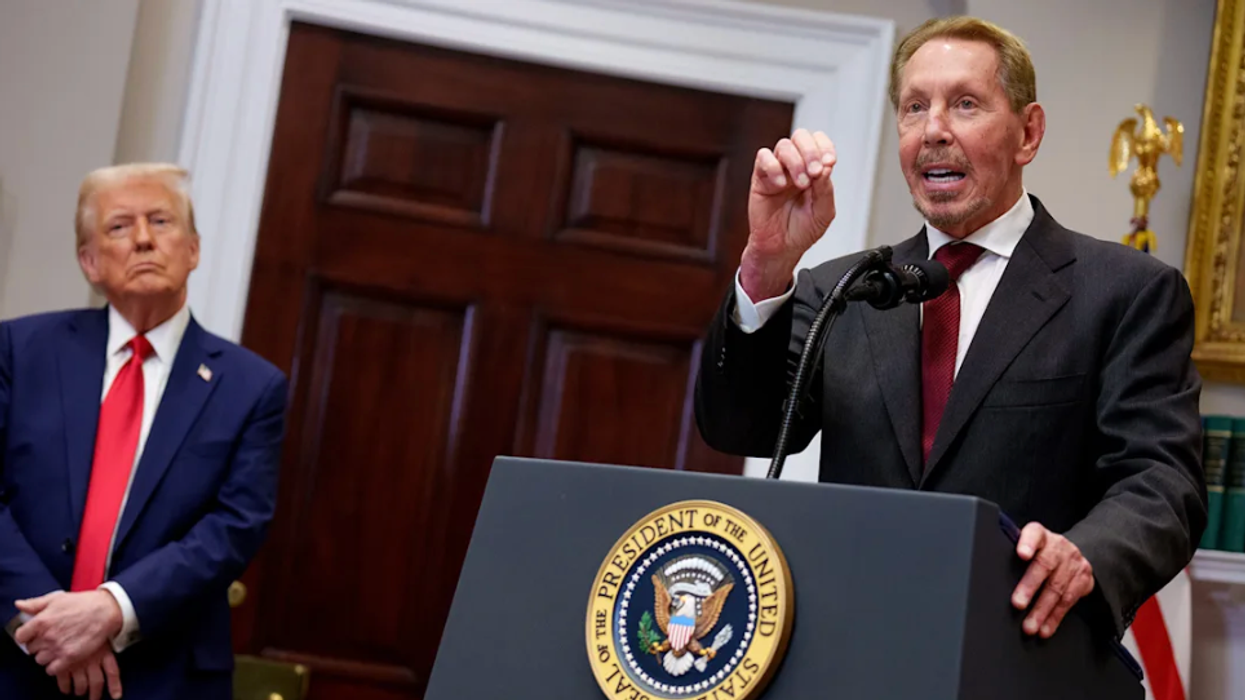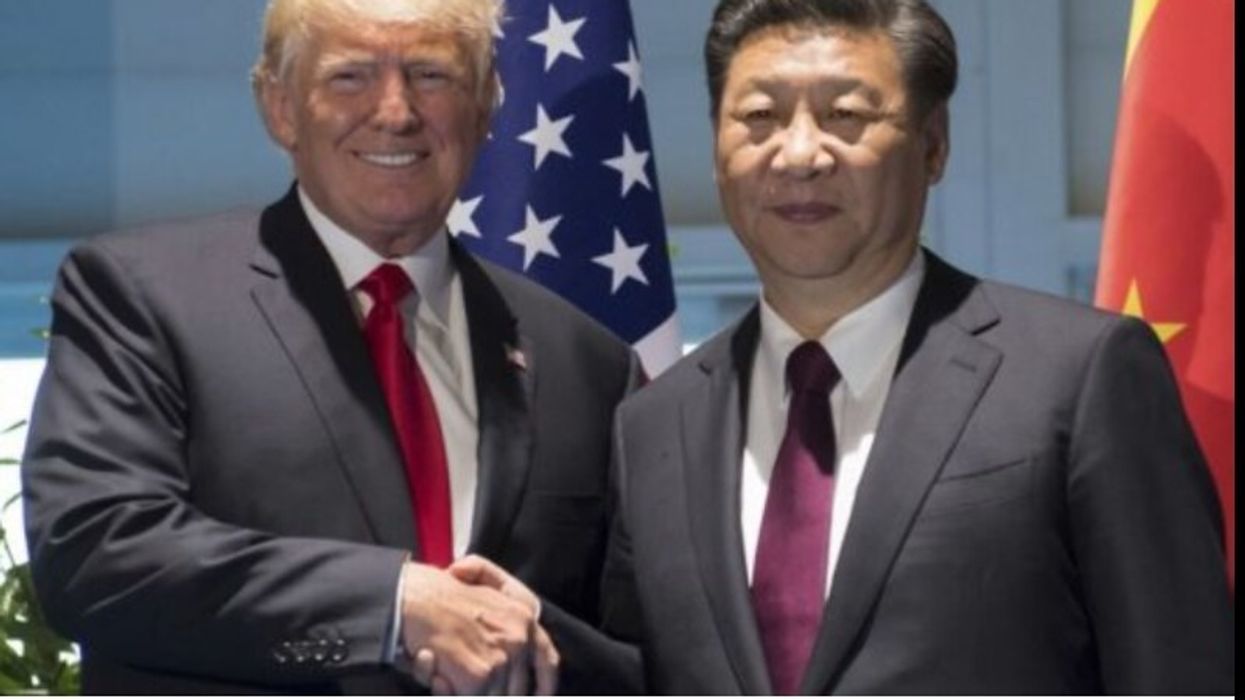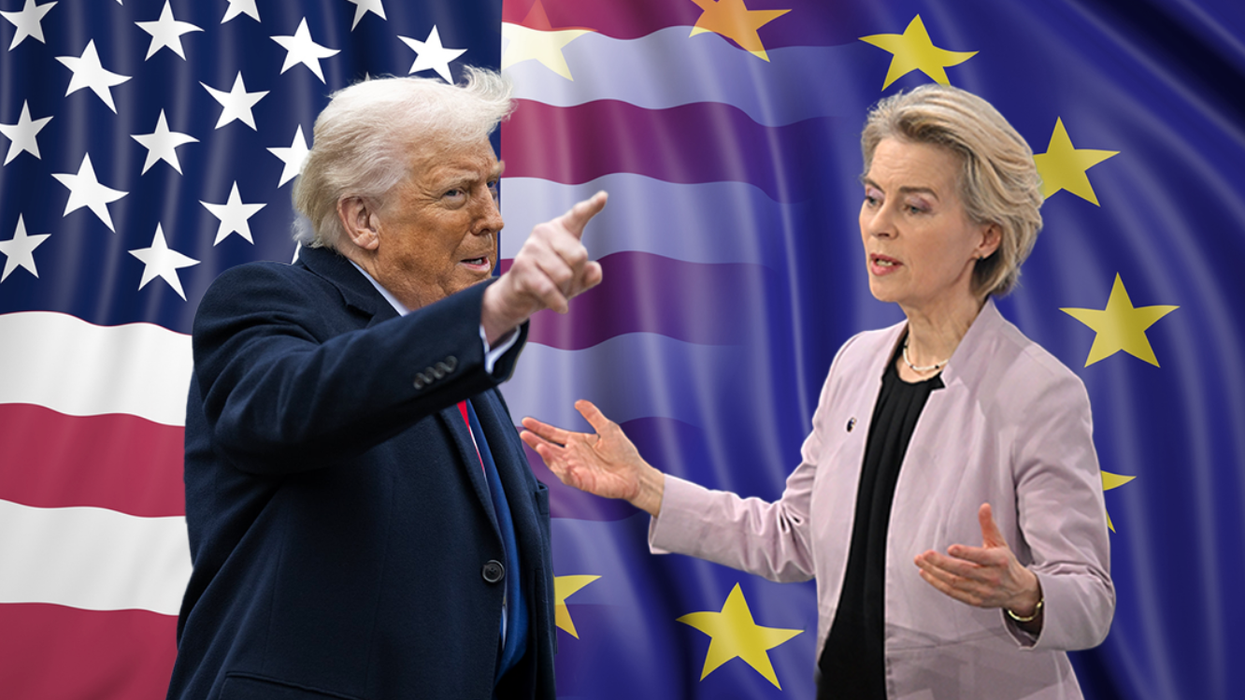Like many U.S. institutions, the European Union has abysmally failed the Trump test. The EU is an economic superpower and could have retaliated effectively against Trump’s illegal tariffs — illegal under both U.S. and international law. Instead, Europe did nothing and even made some apparent concessions.
But notice my wording: apparent concessions. The optics of the Trump-EU deal were humiliating, and optics matter. If you examine the substance, however, it starts to look as if Europe played Trump for a fool. Specifically, a fossil fool.
The EU made two sort-of pledges to Trump. First, that it would invest $600 billion in the United States. Second, that it would buy $750 billion worth of U.S. energy, mainly oil and gas, over the next three years. The first promise was empty, while the second was nonsense.
About those investments: European governments aren’t like China, which can tell companies where to put their money. And the European Commission, which made the trade deal, isn’t even a government — it can negotiate tariffs but otherwise has little power. On Sunday Politico spoke with Commission officials, who effectively confirmed that the investment pledge was meaningless:
[S]peaking Monday, two senior European Commission officials clarified that money would come exclusively from private European companies, with public investment contributing nothing.
“It is not something that the EU as a public authority can guarantee. It is something which is based on the intentions of the private companies,” said one of the senior Commission officials. The Commission has not said it will introduce any incentives to ensure the private sector meets that $600 billion target, nor given a precise timeframe for the investment.
So what the EU actually promised on investment was nothing, Nichts, rien.
The pledge to increase U.S. energy exports was a lot more specific and gave a timeframe. But it’s not going to happen. In fact, it’s going to not happen on three levels.
First, the European Commission, which can’t tell the private sector where to invest, is equally unable to tell the private sector where to buy oil and gas. How would that even work?
Second, the promised level of EU imports is probably physically impossible. Shipping liquefied natural gas (LNG), in particular, requires specialized infrastructure at both ends. On the US side, LNG terminals are already operating at capacity, while Europe’s LNG facilities are “stretched to their limits.” The EU just promised to vastly increase energy imports from America over the next three years, but it’s doubtful whether Europe could build any of the infrastructure needed before the end of that period, even with a crash investment program.
And why would anyone undertake such an investment program in a continent that is rapidly shifting toward renewable energy? As one energy analyst told the Financial Times:
European gas demand is soft and energy prices are falling. In any case, it is private companies not states that contract for energy imports. Like it or not, in Europe the windmills are winning.
Emphasis added because as everyone knows, Trump has a blind, irrational hatred for wind power.
Finally, even if Europe somehow managed to overcome the legal and physical obstacles to buying a lot more fossil fuels from America, both oil and LNG are fungible commodities traded on global markets. This means that any increase in purchases from Europe would reroute U.S. exports rather than increasing them: We’d sell more to Europe but less to, say, Japan and China.
So a big increase in U.S. energy exports driven by demand from Europe is not going to happen. But how will Europe explain its failure to follow through?
It might not have to. Back during Trump’s first term, China promised to buy a lot of U.S. agricultural goods but never did. As far as I know, Trump never made an issue of it. He got to announce a big deal, then lost interest.
And if the issue does come up, if there’s one thing officials at the European Commission are really good at — maybe better than anyone else on earth — it’s bureaucratic delay and obfuscation. Maybe at some point big, strong European men with tears in their eyes will meet with Trump and say, “Sir, we have a temporary hangup over clause #14159 of the 1986 Single European Act. But we’ll get it cleared up any day now.”
Bottom line: Whatever Trump may think, Europe is not going to provide a big boost to U.S. fossil fuel production. He won’t like that, if anyone tells him. But the rest of us should be glad. As I’ve written before, renewables are clearly the energy technology of the future. Trump and his allies are Luddites, trying to stand in the way of progress and keep us burning fossil fuels. Their “burn, baby, burn” obsession is very bad for America and the world. But at least we can be reasonably sure that Europe won’t help, um, fuel that obsession.
Paul Krugman is a Nobel Prize-winning economist and former professor at MIT and Princeton who now teaches at the City University of New York's Graduate Center. From 2000 to 2024, he wrote a column for The New York Times.
Reprinted with permission from Substack.












